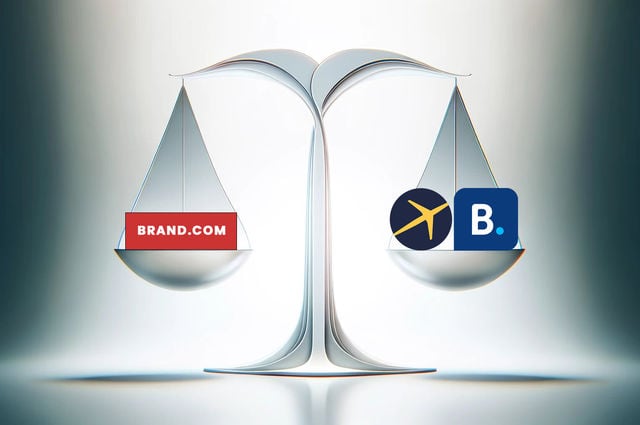Is Rate Parity still “The Law of the Land”?
11 experts shared their view
There was a recent discussion on LinkedIn about the need for maintaining rate parity in hospitality and its implications.
Just to clarify for the non-revenue management folks here, Rate Parity traditionally means maintaining the same publicly available rate for the same room/same stay across all public distribution channels i.e. channels available to any member of the public that is not a loyalty member or member of some guest appreciation or reward program. Rate Parity is not a new online policy specifically designed for the OTAs. It existed long before the "commercial internet" came into being and there was only one reason for its existence: it made revenue management and management of distribution channels much easier. All major hotel chains and smart hoteliers applied rate parity across all offline distribution channels: voice, walk-ins, GDS/brick-and-mortar travel agents, etc. With the advent of the online channel, this business policy was applied to the hotel website and the OTAs as well.
Rate parity in the OTA - hotel relationship means the OTAs have access to any publicly available rate a hotel might have. Rate parity does not preclude hotels or OTAs to offer lower rates to their loyalty or reward program members such as Marriott BonVoy or Expedia One or Booking Genius members. Some hoteliers argue that without rate parity the industry would be better off because hoteliers would be able to sell at whatever rates they want, unencumbered by the OTA rate parity restrictions. No rate parity, in theory, gives the right to publish lowers rates on the hotel website.
In my view, rate parity helps, not hurts hotels (see my post). What's your take?
I believe rate parity is essential for transparency and trust with our guests. It ensures consistent rates across all third-party channels, avoiding confusion and maintaining our brand's reputation. While we have the flexibility to offer special rates on our own website (a channel we fully own), rate parity helps us manage distribution more effectively with OTAs and other third parties we don't fully control (which we don't own). This approach allows us to maintain fairness across various platforms, while still giving us the freedom to provide exclusive offers on our own site.
Ultimately, hoteliers are responsible for delivering the guest experience, so they should have the authority to decide how they handle distribution and set rates. It shouldn't be the third parties making those decisions for us.
Hotel distribution is already the wild wild west, and removing rate parity completely would turn it into full mayhem.
I believe that hotels should have the freedom to set different rates across their distribution channels, including OTAs, without being bound by rate parity agreements.
Firstly, allowing hotels to set their own rates enables them to respond more dynamically to market conditions and tailor pricing strategies to different customer segments. This flexibility can lead to increased direct bookings, as hotels can offer exclusive deals and incentives on their websites. By removing rate parity, hotels can foster stronger relationships with guests, providing a personalized experience that goes beyond price.
Secondly, while some may argue that ending rate parity could lead to OTAs discontinuing their partnership, hotels should carefully consider the trade-offs. While OTAs provide exposure and the so-called "billboard effect," they often come with significant commission fees that eat into hotel profits. By shifting focus to direct bookings, hotels can improve their bottom line by reducing dependency on third-party platforms.
In conclusion, removing rate parity gives hotels the freedom to develop pricing strategies that align with their business objectives and market demands.
Rate parity is non-sense and the RTI ( Retun time invested.) is always negative. here is why:
1. Hotels cannot answer how much additional business they got because of disparity - so easy to throw rocks as to how much money "might have been lost" vs
2. Rate shopping vendors charge you extra for your own data to highlight disparity - so every booking has additional software cost attached to it
3. You add the time it takes to find the answer or where it comes from (e.g. make fake bookings etc.) and all of a sudden you added few hours of your time at your hourly cost.
4. Hotels cry when they "leak an offline rate online" - YOU caused this by having offline rates open = you have enough rooms empty. Be happy, take those bookings and add them to point 1
5. You cause disparity: Limited Time Deal on b.com? oh yes, drives massive bookings for many...oh yes and will totally get your "parity" in disamay.....see point 1!!!
Rate parity is most probably the dumbest thing ever put in place. There is zero benefits!
The concept of distribution is not new; many industries operate solely on this model. Hospitality operates on both direct and distributed sales. Like other industries, we agree with third parties to sell our product— hotel rooms.
When Ford sells a car to a dealer, it is at an agreed price. The dealer builds their business model around that price, with their profit or loss entirely in their domain. Ford receives the agreed price regardless. If the dealer seeks a better price, it is renegotiated with Ford. The dealer does not set Ford's selling price.
In hospitality, it's different. Often, OTAs manipulate the agreed price offered by the hotel, keeping their portion of the revenue. The hotel loses revenue based on a price they did not agree to.
I'm curious to find a similar industry where it is normal for product pricing to be determined by any party other than the producer.
If, as the producer, it is economical to sell my product at a better price directly versus through distributors who add cost, why do I need approval or agreement from a distributor?
If anything, I see rate parity as price fixing. It appears others also seeing it this way.
I believe the hotel-enforced Rate Parity is good for the hotel, not the OTA-enforced one. Travelers go through 48 digital touchpoints before making a hotel booking and Rate Parity allows the hotel to keep the brand promise.
What should independent hotels do?
- Implement and enforce a rigorous Rate Parity policy across all publicly available distribution channels: property website, OTAs, GDS, bed banks, wholesalers, FIT tour operators, etc.
- Subscribe to a rate shopping/monitoring application like Lighthouse, Triptease, RateGain to automate the monitoring of rate parity across distribution channels.
- Introduce Best Rate Guarantee on the property website stating that you guarantee that travelers won't find lower rates than your website for the same room/stay period on any publicly available channel. Promote this guarantee in all of your marketing initiatives.
- Create a gated rate environment via the property website and mobile app: Implement CRM technology and guest appreciation program with benefits, special member rates, etc. The website provides members with member-only rates, perks and benefits, etc. All non-members would see the public rates but will be urged to become members by signing up for the program. Cendyn CRM, Amadeus CRM, Revinate CRM are all good technologies.
Rate parity helps hotels because it is easy to manage and promotes fair practice. Disparity, on the other hand, encourages customers to shop around and creates confusion regarding the product offering. It is acceptable for loyalty member rates to deviate from parity. In a world without parity, larger players with scale advantages could gain an upper hand by becoming more price competitive, as potential discounts can be amortized over a longer customer lifetime value. Therefore, maintaining parity is beneficial. Rate Parity is good, fair and easy to manage.
Picture this: a world where every single hotel offers the same price across all their distribution channels—OTAs, direct bookings, resellers, agencies, you name it. No more sneaky price wars, just pure, unadulterated parity.
What then?First off, metasearch engines would become completely useless. Without any rate differences to compare, rate comparison sites would be as useless as a broken guitar string (even though Sonic Youth might disagree). And that's one less advertising black hole for hotels to pour their cash into. Seriously, according to several studies, we're talking about 40-60% of your online ad spend, currently funneled into platforms like Google Hotel Ads, TripAdvisor, and Trivago.
Yeah, you read that right! More than half of your marketing budget is down the drain because we can't get our act together on rate parity. We're basically paying for the "privilege" of having our rates undercut and our brand diluted.
So... Rate parity? Hell yes, sign me up!
If, and only if, everyone plays fair. If you can guarantee a world where there's no rate leakage, no shady B2B2C deals, no backdoor reselling, and no more OTA commission cuts, I'd ink a rate parity deal with my own blood.
Maintaining rate parity is crucial for a balanced and manageable revenue strategy in hospitality. Ensuring consistent rates across all public distribution channels simplifies revenue management and prevents potential conflicts with OTAs. While some argue that abolishing rate parity could allow for more flexible pricing strategies, the reality is that without significant investments in digital marketing and technology, independent hotels would struggle to effectively promote and sell lower rates on their own websites.
To thrive under a rate parity framework, hoteliers should develop a robust direct booking strategy. This includes investing in a high-quality direct booking engine and implementing loyalty programs to attract and retain customers. Furthermore, investments in digital marketing and revenue management technologies are essential. These tools can enhance a hotel's online presence, making it more appealing and competitive. By promoting best rate guarantees and ensuring a seamless, user-friendly booking experience, hotels can reduce dependency on OTAs and foster deeper engagement with their guests, ultimately driving more direct bookings.
While Rate Parity is still the law and has served as a foundation of industry standardization, hotels are getting smarter to circumvent the same. Special offers for direct booking with coupons, direct booking only room types, special addons for direct booking are creative ways of increasing direct booking.
Rate parity for public distribution would increase brand trust through consistent pricing; guaranteed equal pricing fosters trust among guests regardless of the booking platform. Rate parity promotes trust and transparency among consumers and gives a sense of fairness and reliability. Today's travellers are very digital and informed and have multiple options before making decisions. Rate parity will demonstrate genuineness and enable quick, confident decision-making for guests.
However, traditional revenue management is moving fast to AI-based tools, and attribute-based pricing is on the horizon. Differentiating room types based on specific attributes offers a potential pathway to greater flexibility while maintaining price consistency. That said, are the OTA platforms ready to take on attribute-based pricing and adapt to the time's demands?
If not, rate parity would not be the law of the land in the years to come.
Maintaining rate parity is essential for direct bookings. (and to invest in an amazing booking engine & marketing.)
OTAs offer superior booking experience and have infinitely higher marketing spend. If they also provide better prices, why would anyone book direct?
There's no evidence that banning rate parity clauses has benefited hotels in countries where it's been outlawed. Hotels not offering rate parity will drop in OTA rankings, leading to revenue loss.
What if instead of focusing on rate parity, the industry lobbied for increased paid time off. More vacation days would generate billions in revenue and create millions of jobs. (Remember how Henry Ford introduced shorter work weeks aimed at generating car purchases.
But why create new jobs when we can't even fill the existing ones?
Maybe more paid time off could help (US Leisure & Hospitality PTO: 9 days/year).
European hoteliers who think the US (and other countries) doesn't matter to them, check where your guests are from...
With the rise in cost of living, even those who have the vacation days might not be able to afford to travel.
There are a lot of bigger problems to solve in the world. Rate parity isn't one of them...
Related article by Christoph Hütter
Rate parity is a topic that always raises great questions and generates intriguing discussion. Before I weigh in, I want to emphasize that rate parity works in both both directions. Initially, the hotels demanded it from the OTA's. Around the turn of the millennium, before hotels fully developed competitive websites and still relied on travel agents and voice, they did not want to be undercut online. In the mid-2010's, when hotels introduced member-only rates in response to continued loss of share, the OTA's pointed to the rate parity clauses that hotels insisted be included in their contracts.
The point is that both hotels and third-party sellers have reason to price below to entice shoppers to book their channels. This dynamic isn't new or unique; every market is just a rate-reduction away from a price war. In a classic example of the prisoners' dilemma, all players benefit from not dropping their rates, but each individual player has incentive to do so. While markets rely on the good sense of the pricing decision-makers to not let this happen, the parity clause provides a contractual guardrail in the world of online distribution.
Of course, the fact that parity clauses require hotels and OTAs to act in the best interest of the whole (i.e. the supplier side) is the very reason that they are being outlawed abroad. In the economic world of limited resources, anything that benefits suppliers naturally disadvantages consumers. When spelled out in black and white, such an agreement might be considered anti-competitive and seems dangerously close to price-fixing.
Contractual or not, I believe that maintaining rate parity just makes good business sense. For hotels, ensuring that retail rates are set properly (i.e. aligned with the value being provided) allows us to focus on delivering a quality experience. We won't need to resort to competing on price and risk waking the sleeping giant.
And let's not forget that we are in the hospitality business. We want our customers to be confident in their buying decisions. That can't happen if every purchase comes with the fear that there was a better price available.











